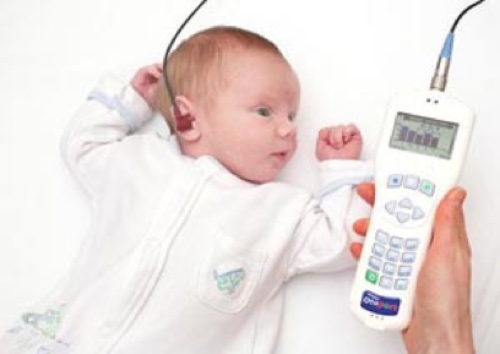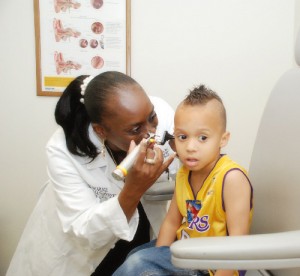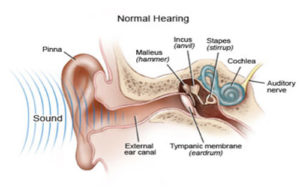- Pediatric Hearing Loss: Overview - September 19, 2016
- The Mechanism of Hearing: A General Overview - September 19, 2016
- Cochlear Implant: An Overview - September 19, 2016

- Risks of Surgery for Surfer’s Ear - October 26, 2017
- The Dangers of Untreated Exostosis / Surfer’s Ear - October 26, 2017
- Surfer’s Ear Treatment: Chisel vs Drill - October 26, 2017
My infant has hearing loss, what is the first step to restoring any sense of hearing?
Most newborns are screened for hearing loss before they leave the hospital. Discovering your infant has hearing loss can be emotionally challenging. In these situations, it is imperative that you act quickly because an infant’s brain develops rapidly, particularly the areas that interpret speech and complex sounds. The first step in this process usually involves evaluation of the type and severity of hearing loss. An otologist or audiologist is the appropriate medical professional to confirm or rule out hearing loss.
Frequent causes of hearing loss in newborns
- Physiological congenital deformities
- Absence of hair receptor cells in the inner ear
- Prematurity
- Maternal ototoxic infections passed on during pregnancy

My child has conductive hearing loss, what are my options?
Conductive hearing loss refers to hearing loss that is caused by a problem or obstruction in the outer and/or middle ear that is preventing sound from reaching the inner ear. This type of hearing loss can be treated with a range of options, depending on what is preventing or obstructing the normal conduction of sound through the ear canal. For example, if excess earwax has accumulated within the outer ear, simple in office earwax management could restore a newborn’s hearing. Another relatively common cause of impaired hearing loss in infants is an infection of the middle ear (otitis media), which can be treated with basic antibiotics. In more advanced cases, hearing aids can improve function in children with mild to moderate hearing loss. In cases of severe conductive hearing loss, hearing loss may be too profound for a traditional hearing aid to be effective. In these cases, a cochlear implant would be more appropriate.
My child has sensorineural hearing loss, what are my options?
Sensorineural hearing loss is usually caused by damage or absence of special sensory hair receptor cells in the cochlea or damage to the auditory nerve. This form of hearing loss is typically permanent and results in mild to profound hearing loss. Treatment for mild to moderate cases include hearing aids and profound cases usually require evaluation for a cochlear implant.
How soon should I seek evaluation and treatment?
It is imperative that you act quickly, as waiting too long could result in your child having severe language comprehension disabilities. Currently the FDA allows children to get cochlear implants as soon as they are 12 months old. Early intervention allows your child to develop normal language and communication skills. At a certain point, typically around age six, the regions of the brain typically devoted to critical speech and language comprehension are repurposed for other skills; at this point, it is unlikely the child will ever fully comprehend speech, but will be able to hear and interpret sounds like an individual with normal hearing.
Pediatric hearing loss should be promptly evaluated and treated by a qualified otologist. Otology is a subspecialty of otolaryngology (ENT). These physicians are experts at evaluating and diagnosing conditions of hearing and balance.
To learn more about hearing loss, please visit: www.ohni.org.



